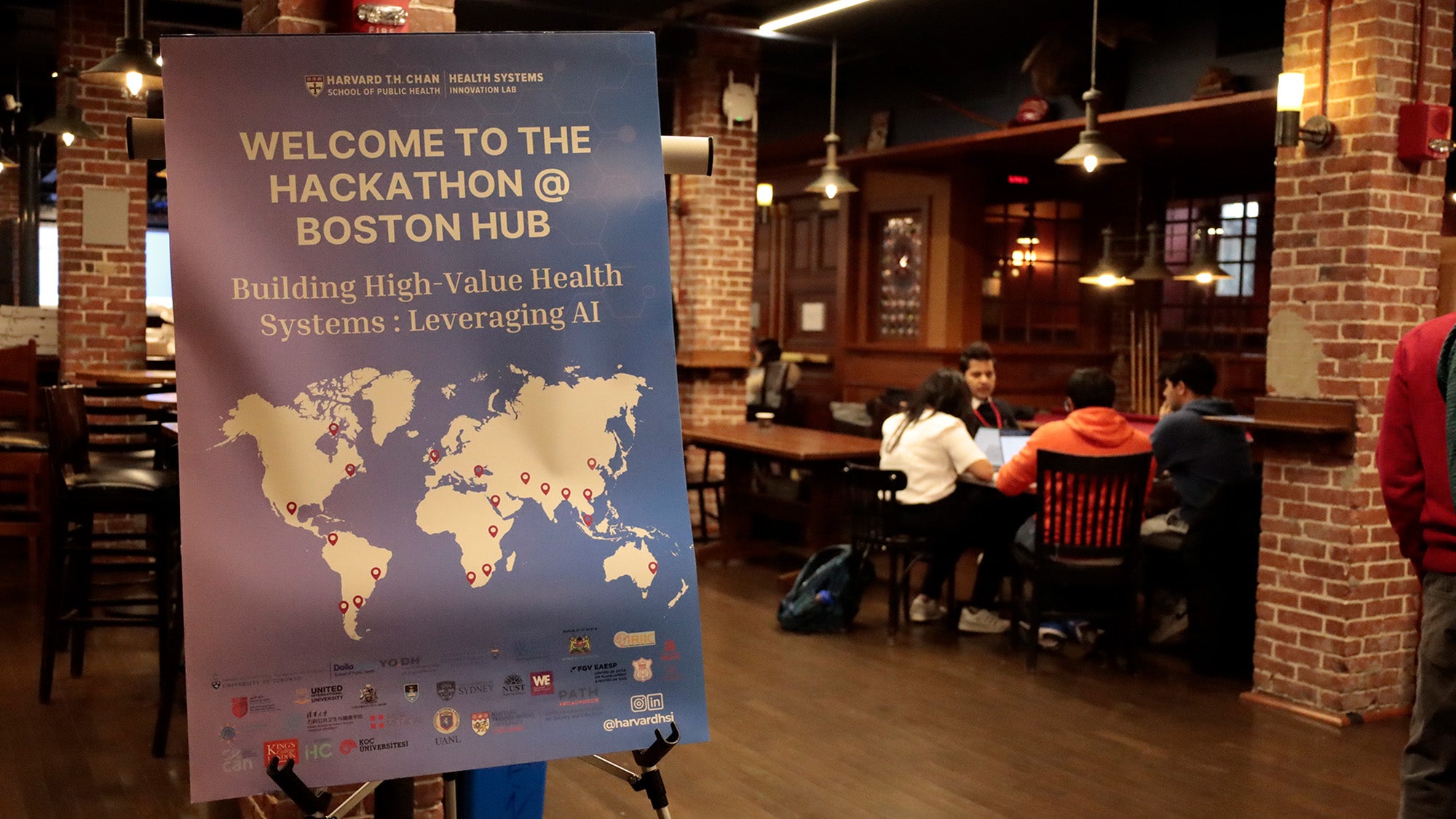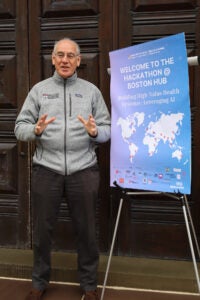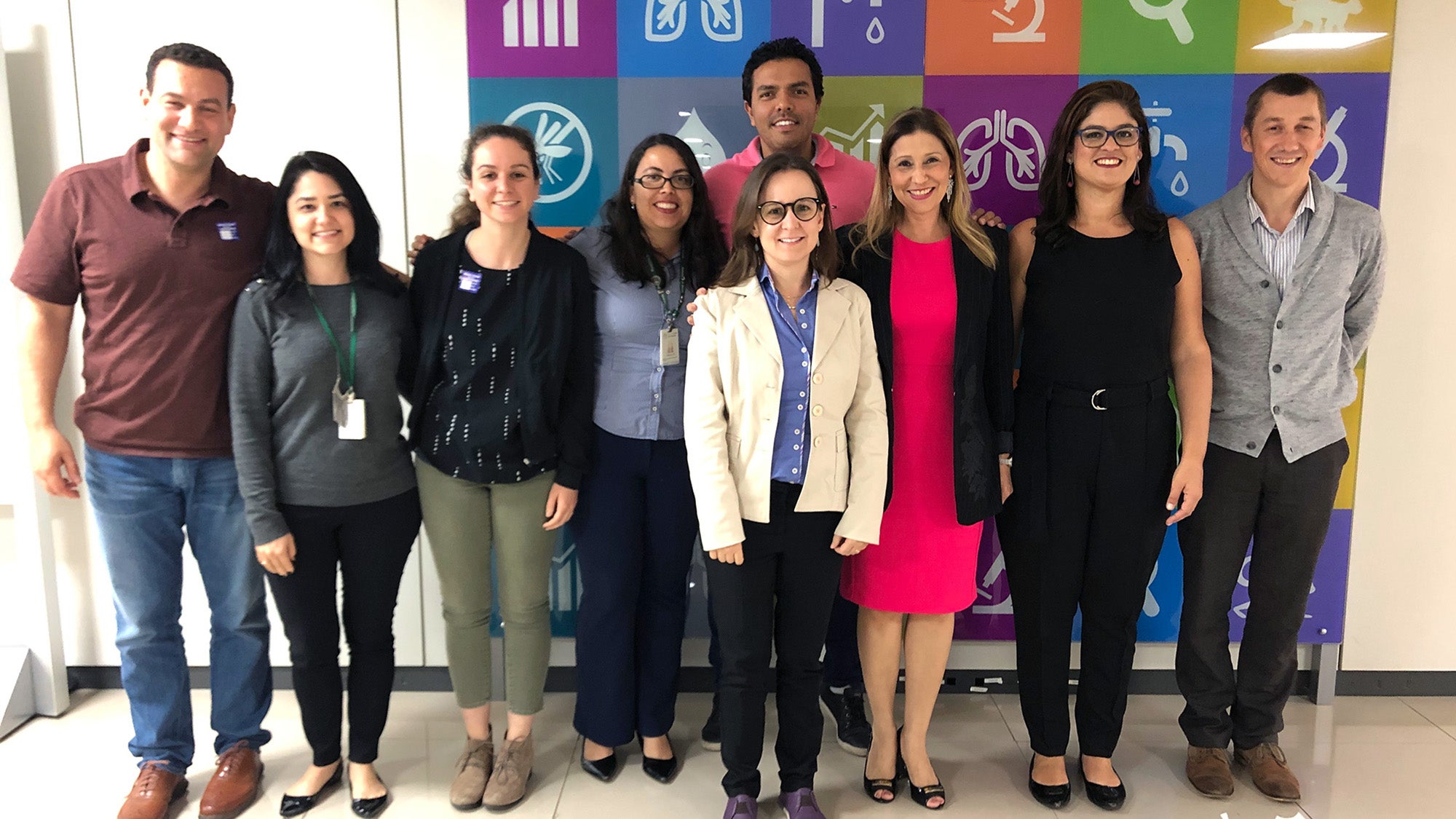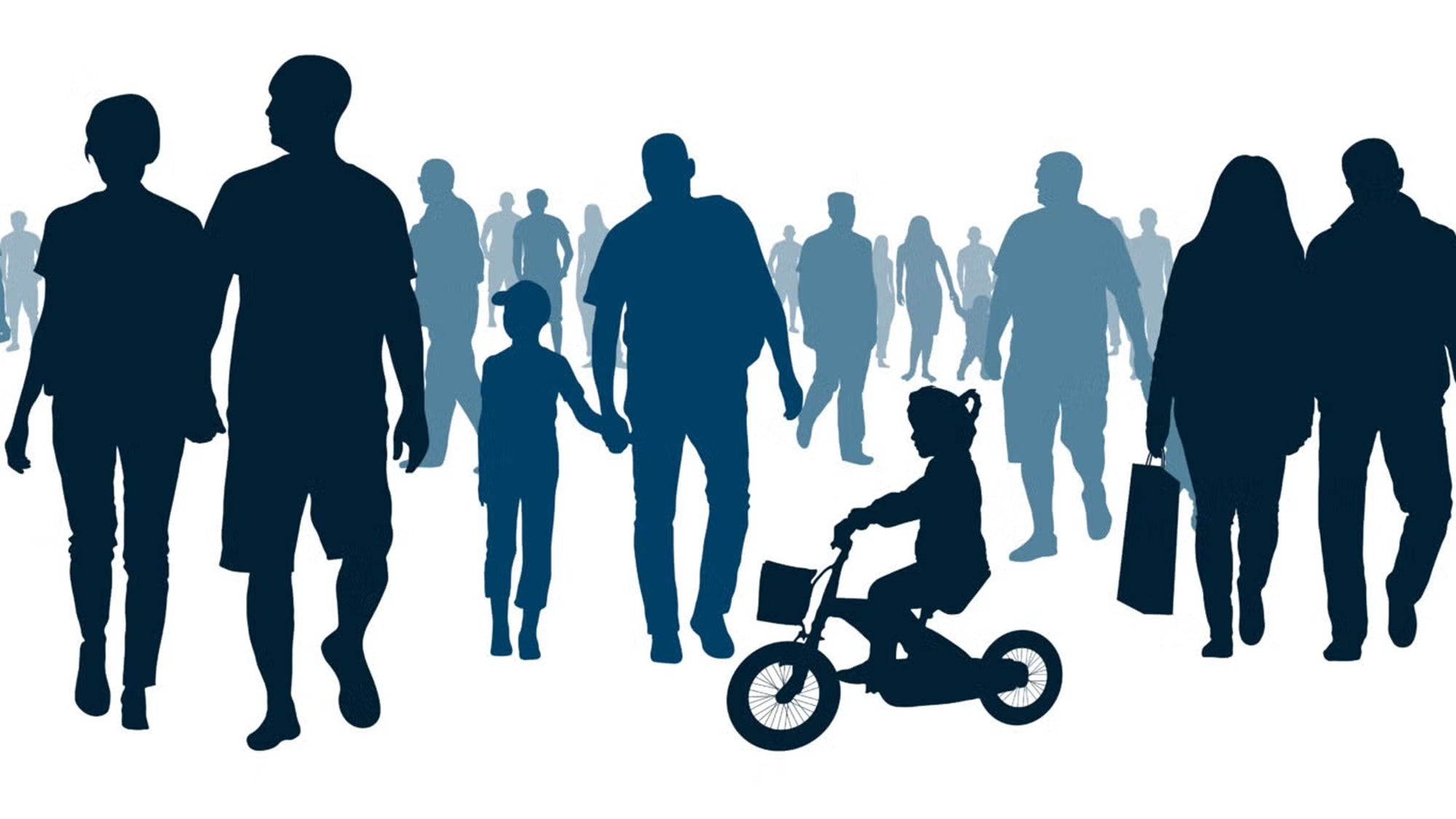Startups vie for investor funding in Health Systems Innovation Lab competition

Angelica, a personalized AI agent designed to support pediatric patients and their families during hospital stays, was the winning startup in a global field of 2,500 teams in this year’s Venture Building Program (VBP), run by the Health Systems Innovation Lab (HSIL) at Harvard T.H. Chan School of Public Health. Team Angelica was one of six finalist teams who pitched their ideas to potential investors during a virtual Demo Day on July 11.
Angelica’s platform includes an AI voice agent that can speak with families around the clock, providing empathetic explanations of their child’s condition and accessible health information. It also offers an interface where clinicians can practice difficult medical conversations, and a space where kids can get age-appropriate health education.
Team member Luigi De Angelis, MPH ’25, who graduated in May from Harvard Chan School, said that his team was inspired to take on a real-world clinical problem. He and his friend and teammate Alessio Morley-Fletcher, a pediatrician at Boston Children’s Hospital, hope to address the various barriers to communication that can crop up between the families of pediatric patients and their providers, such as limited health literacy and rushed appointments.
While participating in the VBP, the team was able to develop a working demo of Angelica. “Entrepreneurship is something you truly learn by doing,” De Angelis said.
From hackathon to investor pitch
The venture competition began in April with what organizers describe as the largest-ever global health systems hackathon focused on developing AI-driven solutions for health care challenges. Some 3,500 participants, including students, researchers, and young professionals, participated in live events hosted across 18 countries, at 19 hubs including in Beijing, Istanbul, and London. Over the course of two intensive days, they received coaching from the HSIL team and local experts as they developed their ideas and presented them to a panel of judges. Just 42 teams were chosen to move on to the next round, the VBP.
Over the next few months, teams participated in a virtual program where they learned the ins and outs of launching a business and continued refining their ventures with guidance from global experts. Teams progressed through three increasingly intensive phases—each with higher training rigor and expectations. They were evaluated by judges from HSIL and global experts, with only six teams advancing to the final stage: Demo Day.
The top-ranked teams will have opportunities to meet with investors who were on the final judging panel, all of whom have experience in health systems, startups, and technology—potentially leading to opportunities for mentoring and funding. Importantly, all participating VBP teams are part of the HSIL alumni network, with continuous access to resources and ongoing mentorship.

“This is not the end, this is the beginning. We look forward to working with you all and supporting your journeys,” HSIL Director Rifat Atun said during Demo Day. Atun, professor of global health systems and vice dean for non-degree education and innovation at Harvard Chan School, noted that members of two of the Demo Day teams were students in his health care innovation course at Harvard Chan School, and that other VPB alumni have gone on to win major prizes at the Harvard Presidential Innovation Challenge and launch successful startups.
One member of the VPB alumni network recently affirmed the important role the Venture Building Program had in launching his career as a digital health care entrepreneur. As a Harvard Chan student Jake Keteyian, MPH ’19, co-founded Vincere Health, which was focused on financially incentivizing Medicaid members to quit smoking. Vincere Health was acquired by health information platform RVO Health last year, and Keteyian currently runs RVOs State Quitline business. He said that through RVO, Vincere Health’s technology is now embedded in smoking cessation programs across all 50 states and more than 1000 commercial clients.
Keteyian said that he particularly appreciated being part of a community of founders when he was developing Vincere Health. “Starting something and going from zero to one is incredibly difficult. Doing it alongside other builders and problem solvers in the Venture Program environment was energizing and inspiring.”


